Indian journalists call for protection from government ‘intimidation’ after NewsClick raids
Joint letter from 18 journalist bodies urges India’s top judge to intervene in name of press freedom
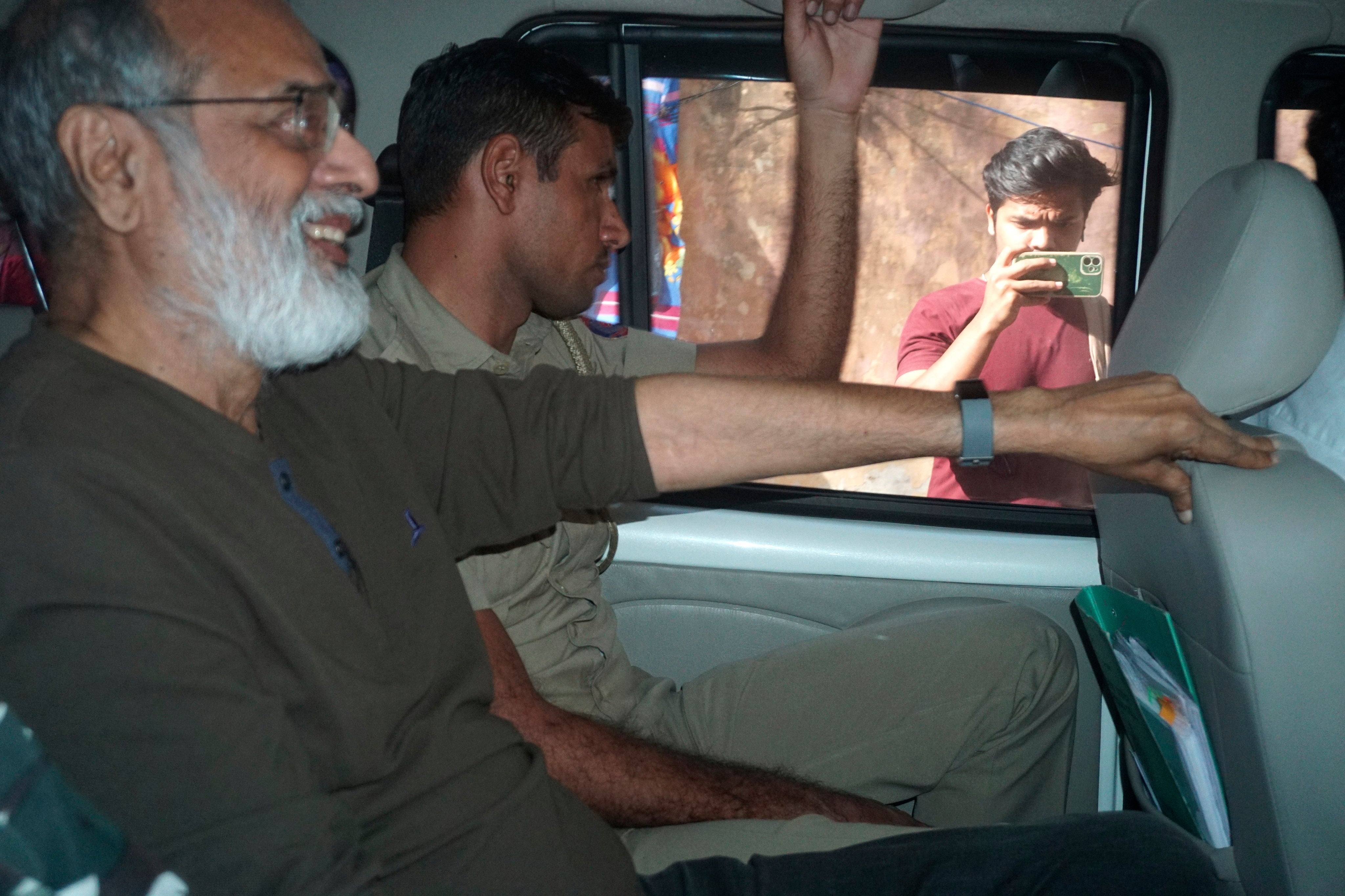
Your support helps us to tell the story
From reproductive rights to climate change to Big Tech, The Independent is on the ground when the story is developing. Whether it's investigating the financials of Elon Musk's pro-Trump PAC or producing our latest documentary, 'The A Word', which shines a light on the American women fighting for reproductive rights, we know how important it is to parse out the facts from the messaging.
At such a critical moment in US history, we need reporters on the ground. Your donation allows us to keep sending journalists to speak to both sides of the story.
The Independent is trusted by Americans across the entire political spectrum. And unlike many other quality news outlets, we choose not to lock Americans out of our reporting and analysis with paywalls. We believe quality journalism should be available to everyone, paid for by those who can afford it.
Your support makes all the difference.Journalists in India say they are working under an “atmosphere of intimidation” after some of the largest police raids targeting a media outlet in the country for years.
Hundreds of journalists joined protests this week and called for the country’s most senior judge to intervene after the Narendra Modi government raided homes and offices linked to journalists from the news website NewsClick, citing a controversial anti-terror law in doing so.
On Tuesday police arrested NewsClick’s editor-in-chief Prabir Purkayastha and its human resources chief Amit Chakravarty, and they have now been remanded to seven days of police custody. The authorities say they are doing their job in investigating whether the website received illegal funding from China.
NewsClick is seen as one of the few remaining media organisations in India that is critical of the Modi administration. Justifying the charges in court, Delhi police accused NewsClick of trying to publicise an inaccurate map of the country and of attempting to sabotage the last general elections in 2019.
NewsClick has denied financial misconduct and said its website ”does not propagate Chinese propaganda”.
In a joint letter to the chief justice of India – the most senior judge in the country’s supreme court – 18 journalist organisations including unions and the Press Club of India criticised the police raids in the strongest terms, saying that “journalism cannot be prosecuted as ‘terrorism’”.
The letter called the police raids “fishing expeditions with no bearing to actual offences” and said journalists have been “chilled by a threat of reprisal”.
The letter called on chief justice DY Chandrachud to order a halt to the police action against NewsClick and cited a judgment he gave back in 2020 before being appointed to the top role, in which he said: “India’s freedoms will be safe as long as journalists can speak truth to power, without being chilled by a threat of reprisal.”
The letter said that India’s “investigating agencies have been misused and weaponised against the press”, and that there was “inherent malice” in harnessing police processes to quash dissent.
It demanded protections for journalists that would prevent officers from seizing potentially sensitive materials including on electronic devices like phones, computers and laptops.
In total, the homes of 46 employees, reporters, freelancers, sub-editors and contributors of NewsClick were raided on Tuesday by police, who seized several electronic devices and reportedly failed to provide the necessary “hash value” while doing so – a unique code that can be used to show the data on a device has not been tampered with.
The letter demanded “a wide immunity against coercion must be read into the constitutional provisions of free speech, and methods must be devised against police overreach – especially given the repeated misuse of these powers”.
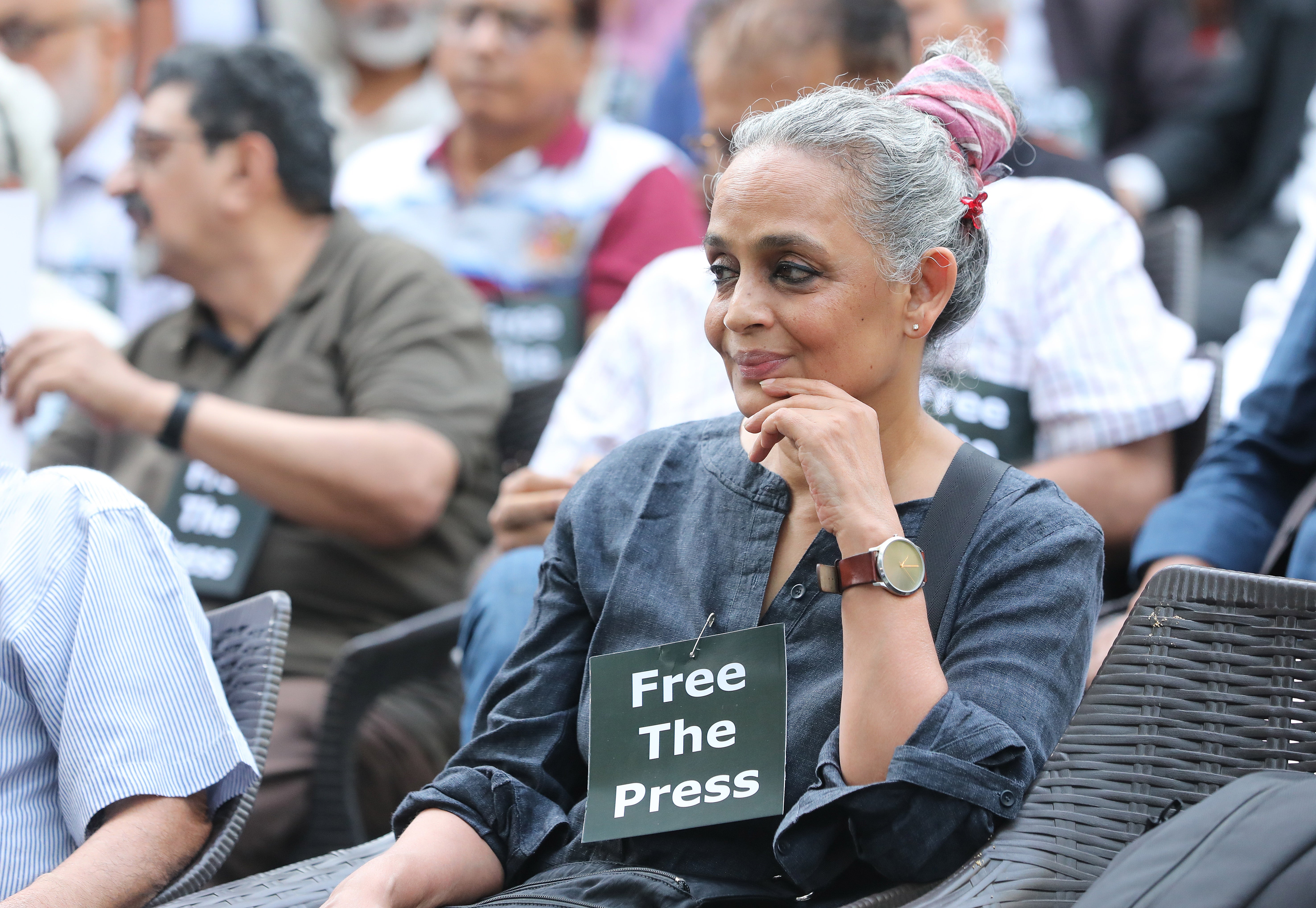
During the protests on Wednesday, journalists carried placards with slogans such as “Stop attacks on media. Stop threatening media.”
“Anybody who speaks against the regime is deemed to be anti-national. This has been a long-term strategy, and these events are the latest in this,” said Manini Chatterjee, a journalist who was part of one protest.
Global media watchdogs like the Committee to Protect Journalists (CPJ) denounced the arrests and raids.
“This is the latest attack on press freedom in India. We urge the Indian government to immediately cease these actions, as journalists must be allowed to work without fear of intimidation or reprisal,” Beh Lih Yi, CPJ’s Asia programme coordinator, said in a statement.
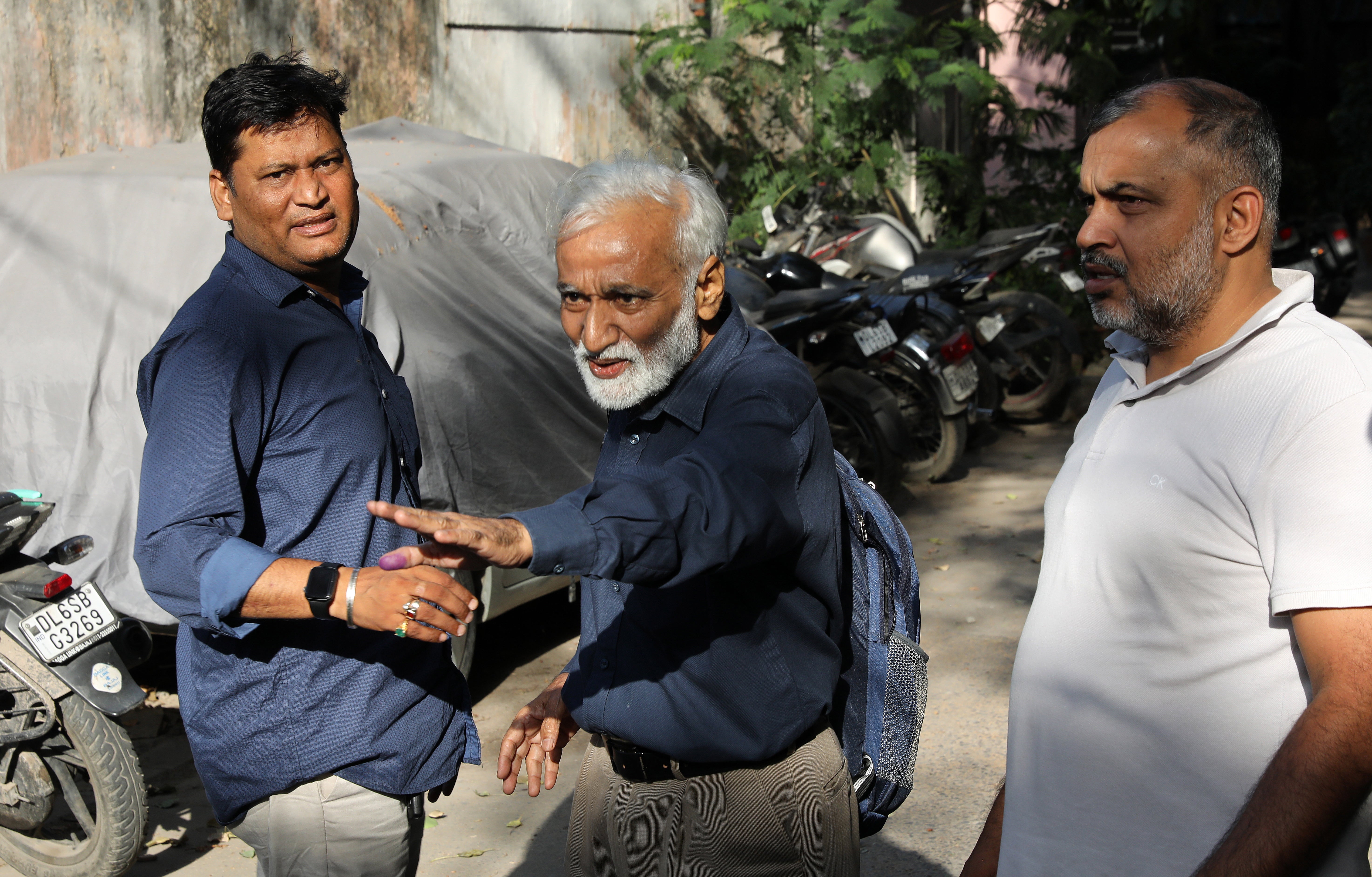
The Editors Guild of India said it was worried the raids were intended to “create a general atmosphere of intimidation under the shadow of draconian laws”.
The anti-terror law under which charges were introduced against NewsClick – the Unlawful Activities (Prevention) Act (UAPA) – allows authorities to detain people without charge or the production of any incriminating evidence for up to 180 days, and has particularly stringent requirements for gaining bail once charges have been brought.
Since Mr Modi came to power in 2014 the law has been repeatedly used against the government’s critics, including students and journalists. According to the Asian Centre for Human Rights, between 2014 and 2020 the vast majority of the 10,552 people arrested under UAPA were either detained or bailed for long periods with the threat of prosecution left hanging over them. In this period just 253 people or 2.39 per cent were convicted under the law.
The UAPA has been dubbed draconian by critics of the law, while its scope has only been expanded under Mr Modi’s ruling BJP government.
NewsClick, founded in 2009, is seen as a rare Indian news outlet that questions Mr Modi’s rule. The outlet was also raided by Indian financial enforcement officials in 2021, after which a court blocked authorities from taking any “coercive measures” against it.
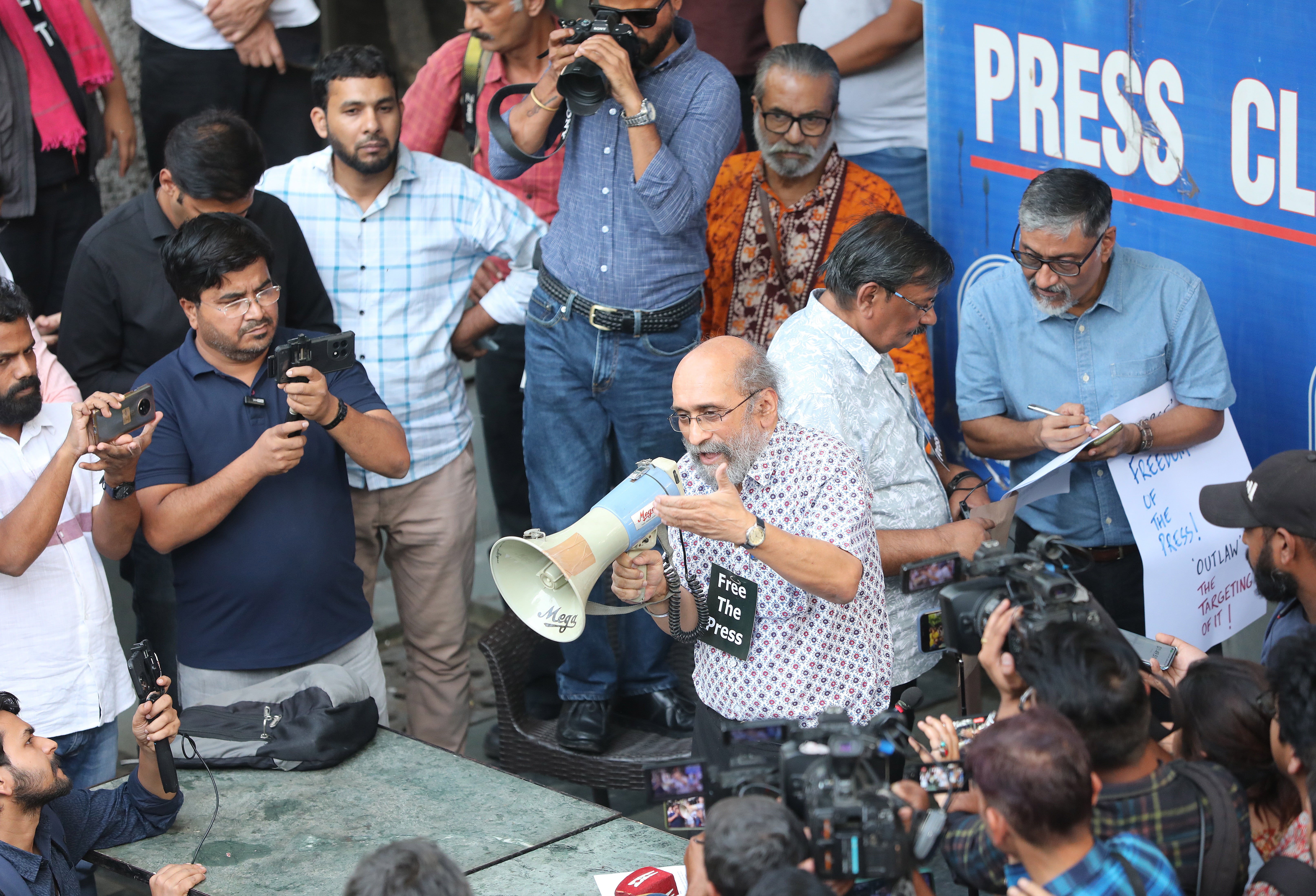
The government brought a case against the site and its journalists on 17 August, weeks after a New York Times report alleged it had received funds from American millionaire Neville Roy Singham, who the report said had funded the spread of “Chinese propaganda”.
That same month, India’s junior minister for information and broadcasting, Anurag Thakur, accused NewsClick of spreading an “anti-India agenda”, citing the New York Times report, and of working with the opposition Indian National Congress party. Both NewsClick and the Congress denied the accusations.
NewsClick earlier issued a detailed statement denying the allegations levelled against it. It said a copy of the preliminary complaint – the First Information Report that is the first step to a police investigation in south Asia – was not shared with them.
“NewsClick’s office has also been sealed in a blatant attempt at preventing us from continuing our reporting,” the organisation said.
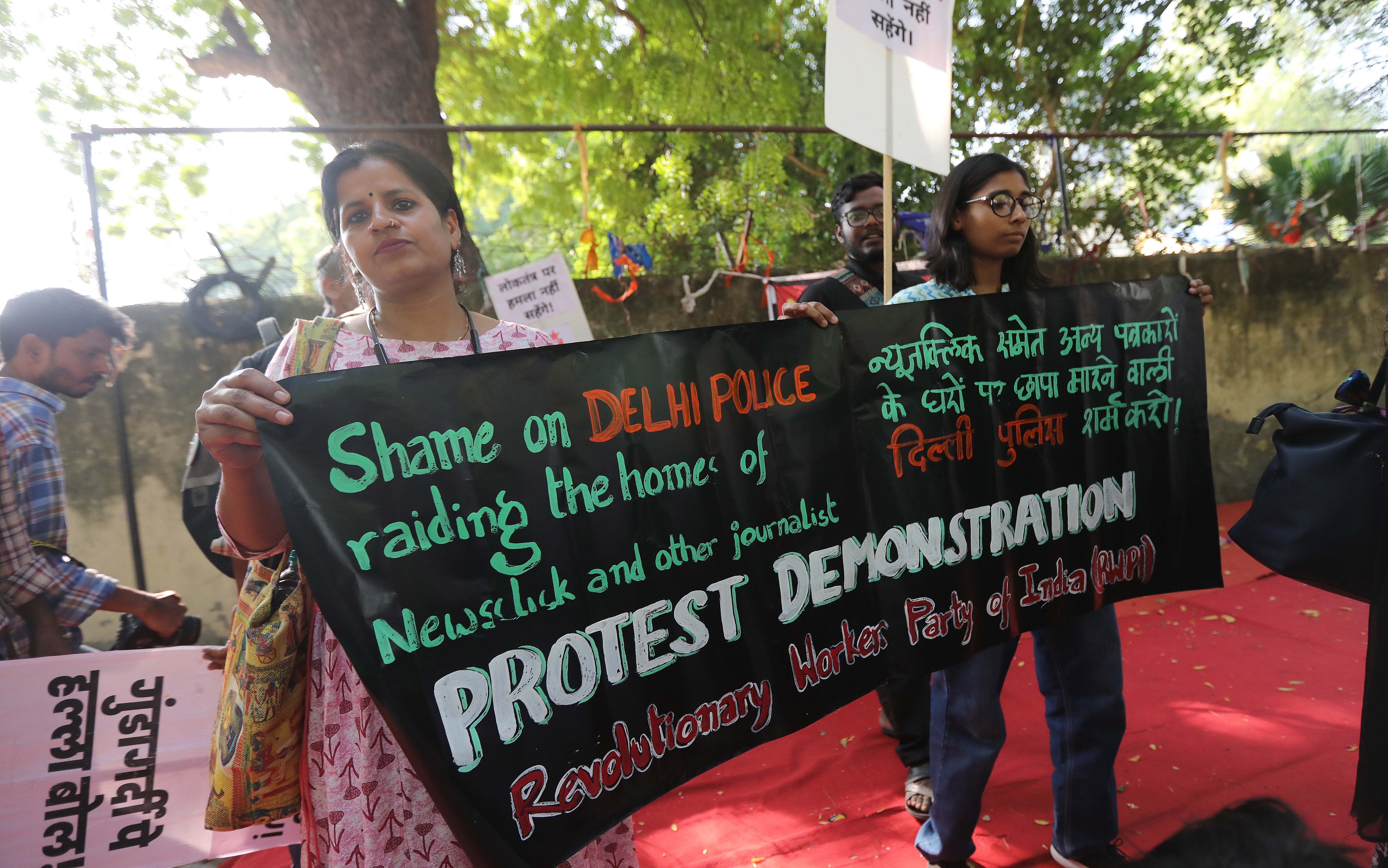
Denying the allegation of carrying Chinese propaganda on its website, the organisation said: “We strongly condemn these actions of a government that refuses to respect journalistic independence and treats criticism as sedition or ‘anti-national’ propaganda.
“NewsClick does not propagate Chinese propaganda on its website,” said the portal, adding that it also “does not take directions from Neville Roy Singham regarding the content published on its website”.
“All funding received by NewsClick has been through the appropriate banking channels and has been reported to the relevant authorities as required by law, as substantiated by the Reserve Bank of India in proceedings before the High Court of Delhi,” it said.
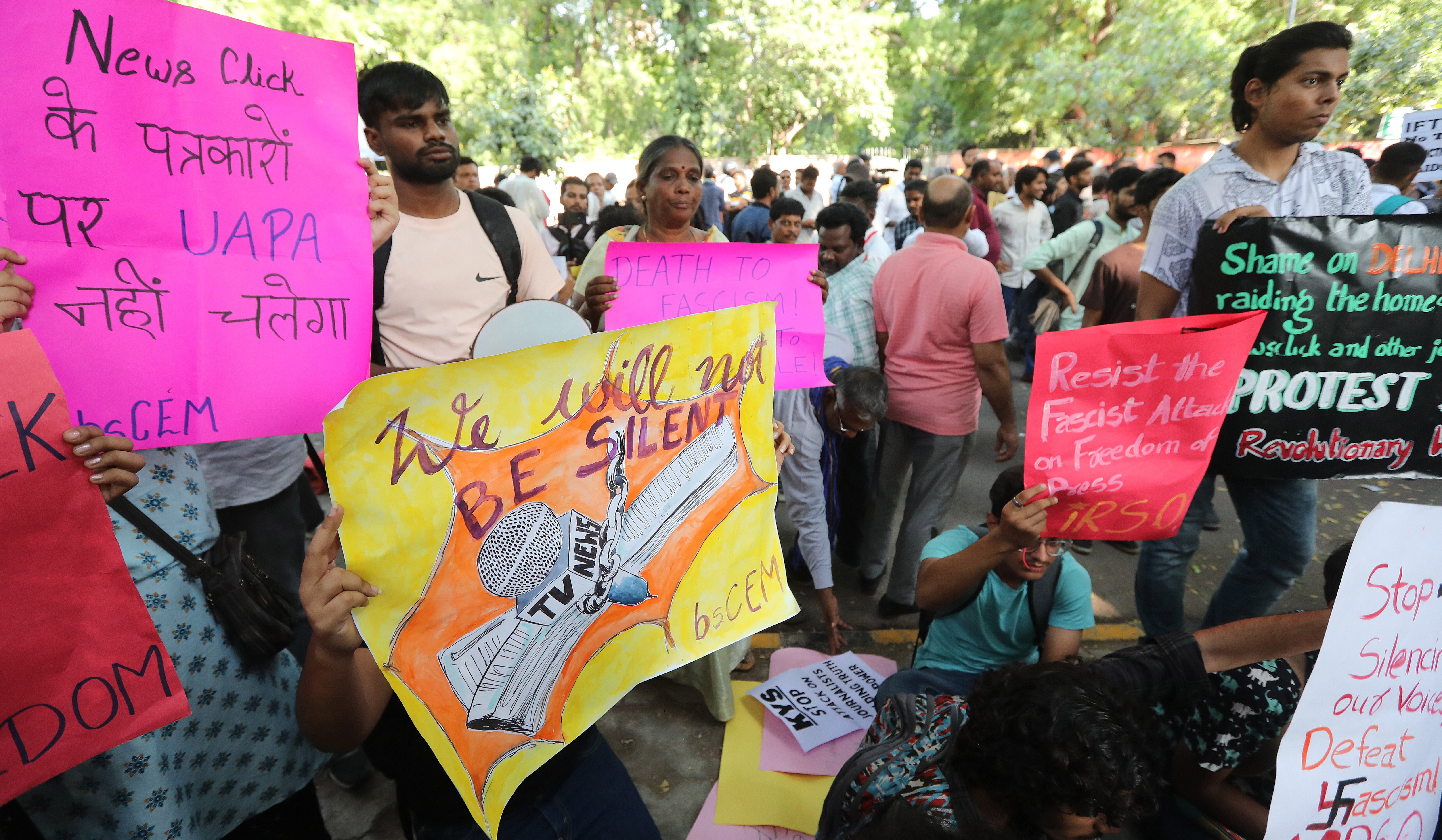
Reporters Without Borders, an advocacy group for journalists, ranked India 161st in its press freedom rankings this year, writing that the situation in the country has deteriorated from “problematic” to “very bad”.
In February this year, authorities searched the BBC’s New Delhi and Mumbai offices over accusations of tax evasion a few weeks after it broadcast a documentary that examined Mr Modi’s role in anti-Muslim riots in 2002 in his home state Gujarat.
A number of other news organisations have also been investigated for financial impropriety, while independent journalists battle censorship, harassment and the prospect of arrest while doing their jobs.
According to the Free Speech Collective, at least 16 journalists in India have been charged under UAPA, with seven currently behind bars. In one of the more high-profile recent cases, journalist Siddique Kappan was kept in jail on UAPA charges for more than two years before finally securing bail last year.



Join our commenting forum
Join thought-provoking conversations, follow other Independent readers and see their replies
Comments